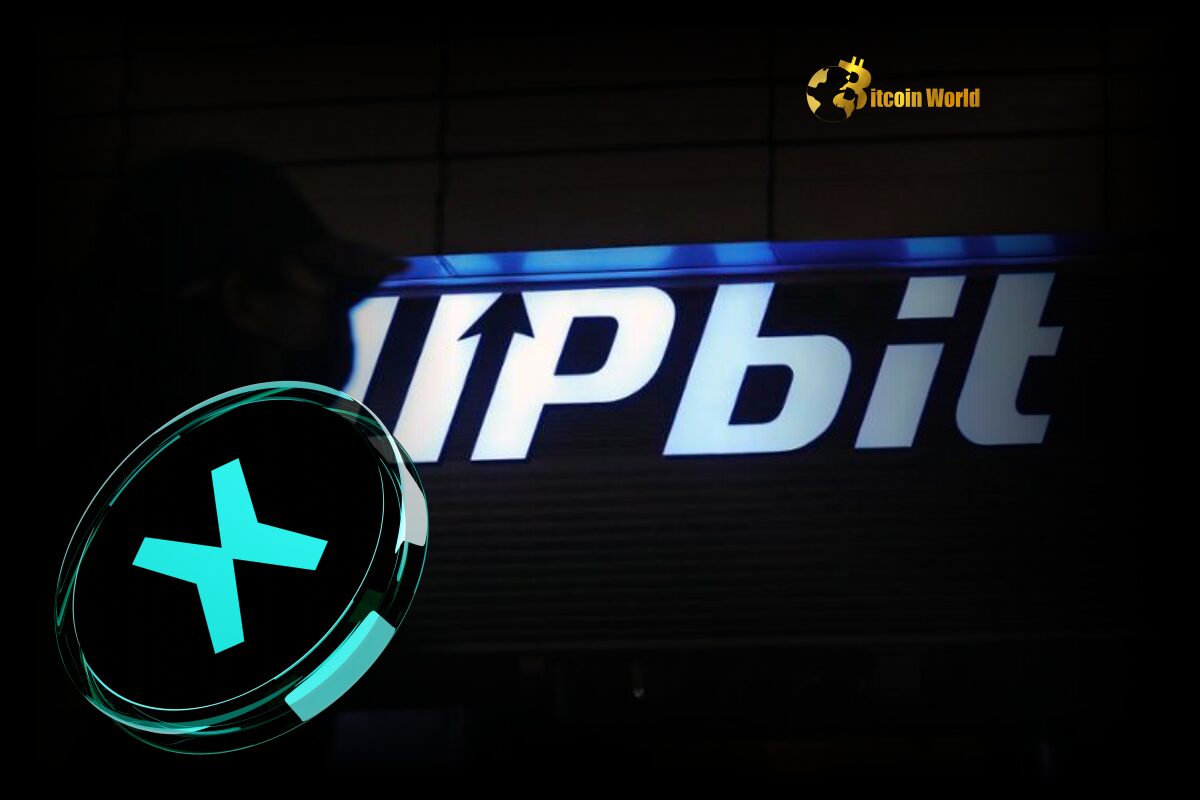BitcoinWorld

Hashed stablecoin: South Korea’s Crypto Giant Unveils Bold Trademark Play
The dynamic world of cryptocurrency never stands still, and recent developments from South Korea’s prominent venture capital firm, Hashed, are once again stirring the pot. Known for its significant investments and foresight in the digital asset space, Hashed has made a strategic move by filing multiple crypto trademarks related to stablecoins. This isn’t just a bureaucratic step; it’s a powerful signal, hinting at ambitious plans that could reshape the landscape of Hashed stablecoin initiatives and further solidify South Korea crypto leadership in the global blockchain arena. What does this mean for the future of digital finance, and how might it impact the burgeoning Korean blockchain ecosystem?
What’s Behind Hashed’s Bold Move in the Hashed Stablecoin Space?
On July 14, as reported by Digital Asset, Hashed formally applied for trademarks including “KRWo,” “OKRW,” and “FKRW.” These specific terms immediately suggest a strong connection to the Korean Won (KRW), indicating a potential intention to launch or support a stablecoin pegged to South Korea’s national currency. For those unfamiliar, stablecoins are cryptocurrencies designed to minimize price volatility, usually by being pegged to a “stable” asset like fiat currency, gold, or other cryptocurrencies. They act as a crucial bridge between the volatile crypto market and traditional financial systems, facilitating transactions, lending, and hedging.
- Hashed’s Vision: As a leading venture capital firm, Hashed has consistently been at the forefront of identifying and nurturing groundbreaking blockchain projects. Their move into stablecoin trademarks suggests a long-term vision that extends beyond mere investment – it points towards active participation in shaping the future of money.
- The “KRW” Clue: The presence of “KRW” in the proposed trademark names like “KRWo” is highly indicative. It suggests a focus on a Korean Won-pegged stablecoin, which could serve as a foundational layer for various decentralized finance (DeFi) applications within the Korean market, or even for cross-border transactions involving the won.
- Strategic Timing: This action comes at a time when global discussions around stablecoin regulation are intensifying, and central banks worldwide are exploring their own Central Bank Digital Currencies (CBDCs). Hashed’s proactive approach positions them as a key player in this evolving narrative.
Why are Crypto Trademarks Crucial for Future Digital Asset Innovation?
Filing crypto trademarks might seem like a mundane legal process, but in the fast-paced world of digital assets, it’s a critical strategic maneuver. Trademarks protect a company’s brand, name, and associated services, preventing others from using similar names that could confuse consumers. For a venture like Hashed, securing these trademarks is about much more than just legal protection; it’s about staking a claim in an emerging market segment and setting the stage for future digital asset innovation.
Consider the implications:
| Aspect | Significance of Trademark Filing |
|---|---|
| Brand Protection | Safeguards the unique identity of any future Hashed stablecoin, preventing competitors from leveraging similar names or concepts. This builds trust and recognition. |
| Market Positioning | Signals Hashed’s serious intent to enter the stablecoin market. It can attract potential partners, developers, and users who are looking for reliable and legally sound digital financial instruments. |
| Future Product Development | Provides a legal foundation for developing and launching products or services related to the trademarked terms. This could include wallets, payment systems, or DeFi protocols built around the stablecoin. |
| Investor Confidence | Demonstrates a commitment to long-term strategy and legal compliance, which can significantly boost investor confidence in Hashed’s ventures and the broader Korean blockchain ecosystem. |
In a space often criticized for its “Wild West” nature, moves like these by established firms underscore a growing maturity and a focus on building sustainable, compliant infrastructure. It’s a clear indicator that major players are looking to bridge the gap between traditional finance and decentralized technologies responsibly.
The Broader Landscape of South Korea Crypto Adoption
South Korea has long been a hotbed for cryptocurrency activity. With a tech-savvy population and a strong interest in emerging technologies, South Korea crypto adoption rates are among the highest globally. However, the regulatory environment has often been a tightrope walk, balancing innovation with investor protection and financial stability.
- Regulatory Evolution: South Korea has made significant strides in crypto regulation, particularly with the implementation of the Act on Reporting and Using Specified Financial Transaction Information (Special FT Act). This act mandates real-name accounts for crypto transactions and imposes strict Anti-Money Laundering (AML) and Know Your Customer (KYC) requirements on exchanges.
- Government Stance: While the government has shown caution, it has also expressed a desire to foster blockchain technology and digital asset innovation. The Financial Services Commission (FSC) and other bodies are actively working on frameworks for digital assets, including stablecoins.
- Retail and Institutional Interest: Both retail investors and institutional players in South Korea have shown immense interest in cryptocurrencies. The country boasts a vibrant developer community and numerous blockchain startups, making it a fertile ground for projects like a potential Hashed-backed stablecoin.
Hashed’s trademark filings are not happening in a vacuum; they are part of a larger national conversation about how South Korea will integrate digital assets into its financial future. This strategic move could potentially pave the way for a domestically-focused stablecoin that aligns with national financial objectives and regulatory expectations.
What Does This Mean for the Korean Blockchain Ecosystem?
The potential launch of a Hashed-backed stablecoin, especially one pegged to the Korean Won, could have profound implications for the entire Korean blockchain ecosystem. A reliable, regulated, and widely accepted domestic stablecoin could unlock a myriad of new possibilities, driving further innovation and adoption.
Here’s how it could impact the ecosystem:
- Enhanced DeFi Activity: A stablecoin pegged to the KRW would significantly boost local DeFi protocols, allowing for more seamless lending, borrowing, and trading activities without the foreign exchange risk associated with USD-pegged stablecoins.
- Streamlined Payments: Imagine instant, low-cost payments using a digital Won. This could revolutionize e-commerce, remittances, and even everyday transactions within South Korea, offering an alternative or complement to traditional payment rails.
- Interoperability: A robust Korean Won stablecoin could serve as a crucial interoperability layer, connecting various blockchain networks and traditional financial systems within the country.
- Competitive Edge: As countries globally race to develop their own digital currencies, a successful private-sector stablecoin could give South Korea a competitive edge in the global digital economy, showcasing its capacity for private-sector led digital asset innovation.
While a private stablecoin and a CBDC (Central Bank Digital Currency) are distinct, the development of a strong private stablecoin could inform and even complement the Bank of Korea’s ongoing CBDC research. It could provide real-world testing grounds for digital currency infrastructure and user behavior.
Navigating the Future of Digital Asset Innovation
The journey towards widespread digital asset innovation, particularly concerning stablecoins, is fraught with both immense opportunity and significant challenges. Hashed’s recent trademark filings are a testament to the ongoing push for a more digitized and efficient financial future, but what hurdles lie ahead?
Opportunities:
- Global Reach: A successful Hashed stablecoin could facilitate easier cross-border transactions for Korean businesses and individuals, reducing costs and increasing speed.
- Financial Inclusion: Stablecoins can offer access to financial services for underbanked populations, particularly in developing economies, though this might be less of a primary driver in South Korea.
- Programmable Money: The underlying blockchain technology allows for “programmable money,” enabling smart contracts to automate payments and financial agreements, opening up new business models.
Challenges:
- Regulatory Scrutiny: Stablecoins, especially those pegged to fiat currencies, are increasingly under the microscope of financial regulators worldwide. Hashed will need to navigate a complex and evolving regulatory landscape in South Korea and potentially internationally.
- Market Adoption: While crypto adoption is high in South Korea, convincing the broader public and traditional businesses to use a new digital currency requires significant effort in education, infrastructure, and trust-building.
- Competition: The stablecoin market is already competitive, dominated by giants like Tether (USDT) and Circle (USDC). A new entrant, even a localized one, will face the challenge of gaining significant market share. Moreover, potential future CBDCs could also pose competition.
- Technological Risks: Ensuring the security, scalability, and stability of a blockchain-based stablecoin requires robust technical infrastructure and ongoing vigilance against cyber threats.
Hashed’s strategic move is a clear indication that major players are not just watching from the sidelines but are actively investing in and shaping the future of digital finance. Their foresight in securing these trademarks positions them uniquely to lead significant advancements in the stablecoin sector, not just in South Korea but potentially influencing global trends.
Conclusion: Hashed’s Vision for a Digitized Won
Hashed’s recent filing of crypto trademarks for stablecoin-related terms like “KRWo” marks a pivotal moment for South Korea crypto and the broader Korean blockchain ecosystem. This strategic foresight by a leading venture capital firm underscores a powerful commitment to driving digital asset innovation, potentially laying the groundwork for a robust Hashed stablecoin pegged to the Korean Won. While the path ahead involves navigating regulatory complexities and fostering widespread adoption, Hashed’s bold move signals a future where digital currencies play an increasingly central role in South Korea’s financial landscape. It’s a compelling step towards a more efficient, interconnected, and digitally native economy, promising exciting developments for investors, developers, and everyday users alike.
To learn more about the latest crypto market trends, explore our article on key developments shaping digital asset innovation and institutional adoption.
This post Hashed stablecoin: South Korea’s Crypto Giant Unveils Bold Trademark Play first appeared on BitcoinWorld and is written by Editorial Team





